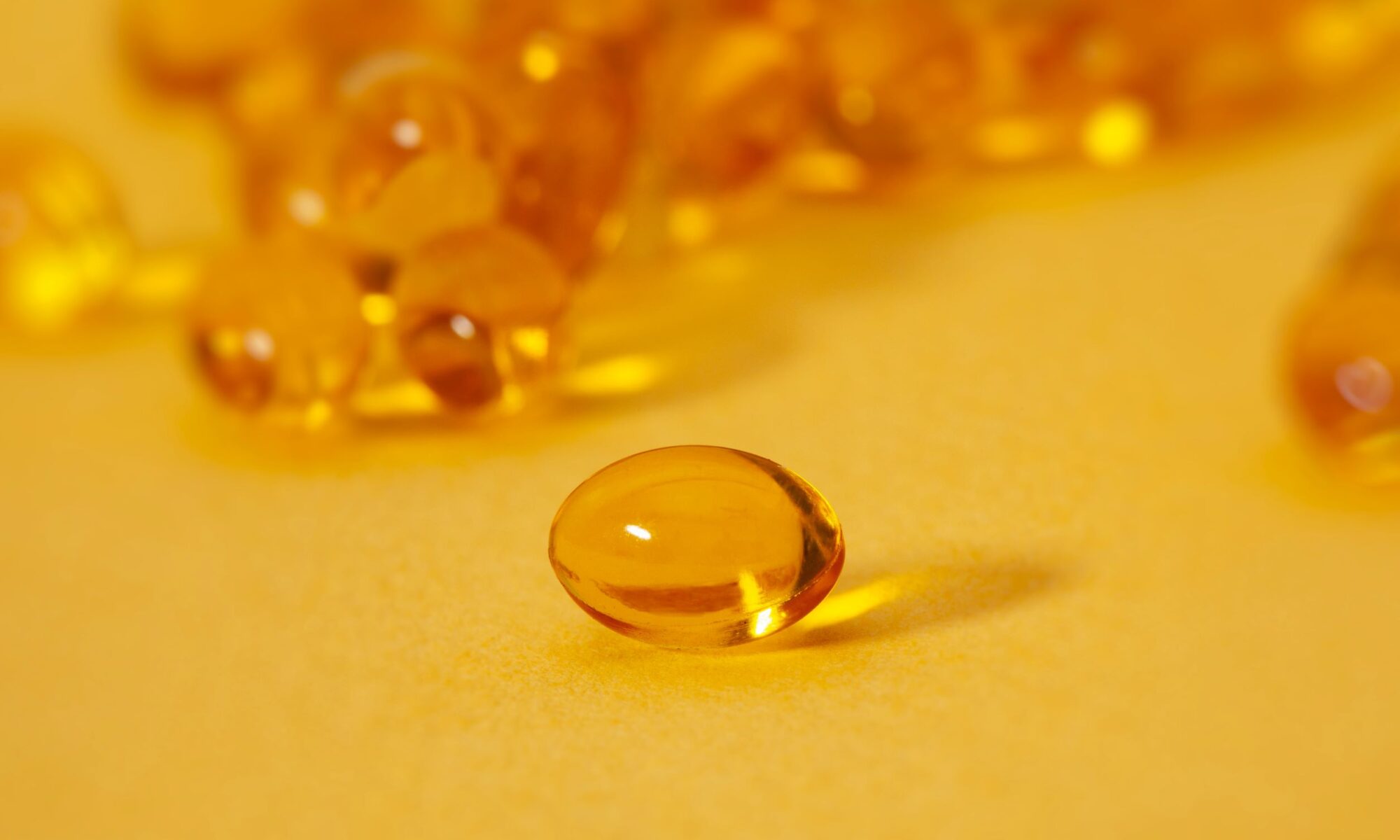Here you’ll find out what brain fog is and its causes. Why is brain fog a Gilbert’s Syndrome symptom? How you can banish brain fog with short, medium and long term tactics. I’ll also signpost you to more help if you need it. Read on!
What is brain fog
‘Brain fog’ describes a collection of different sensations that you feel in your head. Feeling fuzzy or that your thinking is unclear; inability to collect your words and express yourself clearly and concisely; losing the thread of your thoughts; forgetting something a moment after having thought it; disorientation or even dizziness; being easily distracted; a feeling of fatigue or tiredness that isn’t in your muscles.
There are many reasons you might have brain fog
Common causes of brain fog
- Vitamin deficiency such as Vitamin D or B12, or lacking iron.
- Hormonal changes such as during puberty, the menstrual cycle, pregnancy or menopause.
- Low blood pressure.
- Long term poor sleep quality.
- Long term stress or depression.
- Mental health conditions or neurodiversities such as schizophrenia or ADHD
- Caffeine withdrawal.
- Alcohol dependency
- Medication, including antihistamines or other over the counter meds such as cold remedies, as well as prescribed medications or medical treatments such as for pain or cancer.
- Medical conditions such as hypermobility, chronic fatigue, diabetes, multiple sclerosis, thyroid problems, Gilbert’s Syndrome and many more.
- Shift work.
- Allergies or sensitivities to particular foods.
- Environmental toxins and chemicals.
- Trauma.
Why would Gilbert’s Syndrome in particular cause brain fog?
There’s no definite reason we have brain fog with Gilbert’s Syndrome, but it is a recognised symptom. Let’s take a look at some pieces of scientific research examining bilirubin as a neurotoxin and its ability to pass through the blood brain barrier.
Jaundice and brain fog – Is bilirubin toxic to the brain?
If you have Gilbert’s Syndrome then you produce too much unconjugated bilirubin from time to time. And, yes, this bilirubin is a neurotoxin. But in adults this should cause little problem unless there are excessive levels of bilirubin that are life threatening. Excessive levels of bilirubin are not a part of Gilbert’s Syndrome. Gilbert’s Syndrome produces mild to moderate rises in bilirubin levels.
The science stuff:
Babies can have high levels of bilirubin just after birth, and their brains are not developed to process it the way adults are. This is why bilirubin can be dangerous to newborns. Adult brains have ways to deal with the bilirubin that prevent it from causing damage. This is noted in the extract from a piece of research below.
https://pubmed.ncbi.nlm.nih.gov/11001835/
However, because bilirubin is neurotoxic, hyperbilirubinemia in the newborn may exceptionally result in death in the neonatal period, or survival with severe neurological sequelae (kernicterus). Bilirubin enters the brain through an intact blood-brain barrier. Clearance of bilirubin from brain partly involves retro-transfer through the blood-brain barrier, and possibly also through the brain-CSF barrier into CSF. Work in our lab during the past 5 years has substantiated earlier work which had suggested that bilirubin may also be metabolized in brain. The responsible enzyme is found on the inner mitochondrial membrane, and oxidizes bilirubin at a rate of 100-300 pmol bilirubin/mg protein/minute. The enzyme activity is lower in the newborn compared with the mature animal, and is also lower in neurons compared with glia.
https://www.sciencedirect.com/science/article/abs/pii/S0188440914002641
This article notes some of the effects of Uncojugated Bilirubin (UCB) on the barrier of the brain. The tests are in an artificial environment not actual people. They do note that long term exposure to high levels can cause neurological damage. However, in Gilbert’s Syndrome the levels wouldn’t be high enough for long enough:
In spite of the increased awareness of UCB effects to brain cells (Brites and Brito, 2012), knowledge about its passage across the endothelial monolayer, the rate in which this passage is achieved, and its effects on the integrity of the brain endothelial barrier is scarce …
In conclusion, our data demonstrate that UCB impairs barrier function in an in vitro model of the human BBB. Interestingly, this interaction involves dual effects that depend on the time of incubation, with early transcytosis and late paracellular pathways facilitating UCB entrance into the brain (Figure 8). Collectively, these results underscore the need of prompt clinical intervention in cases of lasting hyperbilirubinemia to prevent BIND and related irreversible CNS damage.
https://www.frontiersin.org/articles/10.3389/fncel.2012.00022/full
As this piece notes, there are other enzymes in the adult brain that protect the brain from neurotoxic effects:
Owing to its lipid soluble nature, bilirubin may cross the blood-brain barrier and thus enter the brain. Its clearance from the brain is ensured by the presence of an enzyme on the inner mitochondrial membrane, which aids in the oxidation of bilirubin, thus protecting against its neurotoxic effects. The mechanism of toxicity is yet obscure, but bilirubin has a higher affinity to settle in glia and neurons.
https://www.ncbi.nlm.nih.gov/books/NBK544252/
The question is – does the effect of higher bilirubin result in sensations of brain fog, although it doesn’t appear to cause long term damage? The studies don’t appear to answer that explicitly. Bilirubin might be a factor. If you manage your Gilbert’s Syndrome and have fewer episodes of raised bilirubin this should hopefully lead to less brain fog.
Solutions
If you’ve been experiencing a long term episode of brain fog it’s a good idea to go to see your health professional. I experienced brain fog and disorientation which I thought was Gilbert’s Syndrome at first. After a couple of weeks I went to see my Doctor. It turned out to be a vitamin deficiency and I got better after a week or two of treatment.
If you are experiencing a symptom flare up, or regular episodes, then you could try a number of things that might help relieve the symptoms. (Please do always consult your Doctor if your symptoms are unusual. I’m not a medical Doctor and I am not qualified to provide medical advice. )
Quick(er) fixes
Hydration! Ok, so it’s really true that a lot of people just don’t drink enough and this directly affects your ability to think. If you are feeling sluggish a glass of water could be the simple answer.
Nutrition – I have already mentioned that some deficiencies can cause problems. If you’ve had a long episode of brain fog that isn’t going away then do see your Doctor. This is particularly important if you take medication that can prevent you absorbing vitamins.
There are lots of foods that can optimise your health and brain health especially. I talk more about specific foods below. A balanced plant predominant wholefood diet is the best for overall health. This reduces junk highly processed foods that can cause you to feel generally unwell over time.
Alcohol, sugar and caffeine can all mess with energy levels and cause issues if you have Gilbert’s Syndrome. Of course as noted below and elsewhere, caffeine can help some people.
Exercise – Encouraging blood flow to your brain through exercise is an easy fix, short, long and medium term. It helps your brain stay healthy for longer. Just don’t embark on sudden vigorous exercise if you have Gilbert’s Syndrome – or your symptoms may be triggered. Even standing and moving about the room on a regular basis can help.
Sleep quality is really important. There are many reasons you could experience poor sleep and brain fog can result. Improving sleep quality may resolve the issue. Sometimes life gets in the way of sleep! In which case you could try other tactics such as stress reduction, pacing or supplements to help bolster your energy.
Stress reduction or managing response to stress eg meditation, hypnotherapy, counselling, cbt, can help you deal with stressful or anxious thinking that are preventing you from thinking clearly.
These are all lifestyle interventions that can reduce your Gilbert’s Syndrome symptoms overall. Other posts talk about some of these in relation to managing Gilbert’s Syndrome symptoms. Here are links to some:
https://gilbertssyndrome.org.uk/how-to-stop-feeling-exhausted/
https://gilbertssyndrome.org.uk/gilberts-syndrome-and-caffeine/
https://gilbertssyndrome.org.uk/hack-your-liver-to-improve-your-mental-health/
https://gilbertssyndrome.org.uk/the-liver-diet/
I have produced a Gilbert’s Syndrome Essentials course that can help you with the main Gilbert’s Syndrome symptoms. The course has additional advice and resources to help you get started on your journey to a happier and healthier life with Gilbert’s Syndrome. Read more
To develop a personalised programme you might want to work with a health coach who can help you get a plan to improve your wellbeing based on your individual circumstances. They can help you track and manage symptoms together with you. https://wellandgoodlife.co.uk/plans-for-health-and-wellbeing/
Tracking and managing symptoms
If you’ve tried a few things and they haven’t worked, then maybe you need to take a more detailed look at what’s happening and when.
Can you pinpoint episodes? Is there something that happens beforehand. Try a symptom tracker. It may be something that happens the day before or a couple of days before that is the trigger. You might then be able to avoid the problem or adjust your lifestyle to reduce exposure or experience the symptoms when they’ll have less impact.
For example, I had a once weekly commute to a distant city which was an eight hour round trip on top of a day of long meetings. The next day I would feel absolutely drained, and overwhelmed by brain fog. I made sure that was my final working day of the week or adjusted my hours to ensure a short working day afterwards with no complex tasks.
Pacing
A similar kind of symptom management is ‘pacing’. If you find that after certain activities or an active period you experience brain fog or fatigue, then balancing your activities might mean you have fewer episodes. If you have a chronic health condition then pushing through is not usually the best method of living better with your condition. Pacing, a practice tested and developed with people who have chronic fatigue conditions, has been shown to work well in managing symptoms including brain fog.
The organisation for people with Ehlers Danlos and other hypermobility conditions has a guide that is useful: https://www.ehlers-danlos.org/information/managing-fatigue-sleeping-problems-and-brain-fog/
Action for ME have a useful booklet on pacing that sets it out in great detail if you want to have a go https://www.actionforme.org.uk/uploads/pdfs/Pacing-for-people-with-me-booklet-Feb-2020.pdf
How pacing works: First you would analyse when your activities are triggering your brain fog. Then limit those activities by initially reducing considerably or down to within a minimum. Only increase activity if that doesn’t result in symptoms. It takes time and planning, but it can get you off a treadmill of repeated brain fog and fatigue episodes. Sometimes you may blow your activity budget for a special occasion. At least you know what to expect and can set time aside, or practice self care to recover more quickly.
If you have ensured you are deficiency free, don’t have other health issues that aren’t treated, are eating well, reducing your exposure to caffeine, sugar and alcohol, sleeping well and are managing stress, plus there are no specific triggers to avoid then you are likely to have fewer episodes. There are plenty of posts to help with some of those aspects of living better with Gilbert’s Syndrome. You can also take the Gilbert’s Syndrome Essentials course for a grounding in dealing with some of the key symptoms.
Long term brain health
You can support your brain function for the long term too.
Adding berries into your breakfast could increase concentration and focus. This may be because the antioxidants reduce inflammation and support blood flow. They also support brain plasticity, enabling it to organise itself better See this study https://www.ncbi.nlm.nih.gov/pmc/articles/PMC4192974/
And in this study, blueberry juice was found to help brain function https://www.labnews.co.uk/article/2025588/berry_aids_brain_function_improvement
Nut intake has also been linked to better capability to pass cognitive tests in later life for women in this study https://www.ncbi.nlm.nih.gov/pmc/articles/PMC4105147/
Caffeine can have short and long term benefits if you can tolerate it. It may protect against Alzheimer’s but this is thought to be because of the antioxidants. https://www.ncbi.nlm.nih.gov/pmc/articles/PMC7554764/ https://pubmed.ncbi.nlm.nih.gov/26677204/ Although caffeine has its benefits, it can potentially work against you if you are trying to balance your energy levels and issues such as brain fog. Becoming reliant on a psychoactive stimulant can make it harder to manage your fluctuating fuzzy head symptoms. Here’s my post on Gilbert’s Syndrome and caffeine
Supplements
You can add supplements into your healthy living plan or toolkit. Or, you may just need an extra boost during an episode. Here are some you might try.
Ashwagandha https://www.ncbi.nlm.nih.gov/pmc/articles/PMC3573577/ https://www.ncbi.nlm.nih.gov/pmc/articles/PMC3252722/ and
Rhodiola https://www.ncbi.nlm.nih.gov/pmc/articles/PMC9228580/ are adaptogens that help balance stress and energy levels, enabling great energy stability. They don’t work overnight, but can provide a general foundation for balancing energy and improving sleep.
Add in Gotu Kola if you need a gentle lift more immediately. I find it acts like caffeine, but without the agitation, rapid heart beat and discomfort that I experience with coffee due to my sensitivity. I use it if I have a demanding task and I’ve perhaps had a poor night’s sleep or have a flare up of fatigue for another reason. Studies show its use in a wide range of conditions. It is thought to protect the brain, support brain health, help mood and even work as a painkiller https://examine.com/supplements/gotu-kola/research/#ref-71
If you are experiencing an overall increase in your Gilbert’s Syndrome symptoms and feeling hungover, perhaps jaundiced, nauseous etc, you might want to add in supplements such as zinc sulphate to reduce bilirubin levels. Some people also take NAC. Read more about how they impact bilirubin here: https://gilbertssyndrome.org.uk/what-is-gilberts-syndrome/bilirubin/
Some people take calcium d glucarate to help with the glucuronidation (detox pathways in the liver), and dandelion root is also thought to help https://mastcell360.com/wp-content/uploads/2019/11/Glucuronidation-Assist.pdf
More help and info
I hope I’ve given you lots of ideas to try to help banish brain fog. If you would like more support to develop a lifestyle that supports a healthier and happier life with Gilbert’s Syndrome, you can find the Gilbert’s Syndrome Essentials Course and plans for personal support and coaching to help you here. https://wellandgoodlife.co.uk/plans-for-health-and-wellbeing/
Get regular updates on the latest help for Gilbert’s Syndrome on twitter https://twitter.com/GilbertsSyndrom and instagram https://www.instagram.com/gilbertssyndrome.org.uk/
Do let me know if you experience brain fog and if anything has helped you by sharing your comments below.



